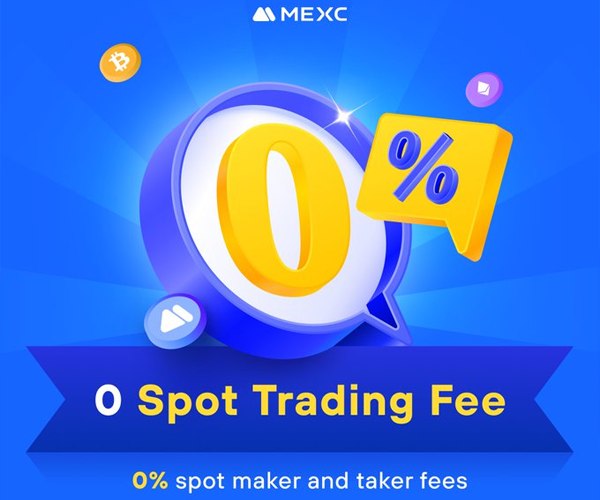Can a single blockchain platform cater to both decentralized finance and innovative music services? Launched by the Solana Foundation in 2020, Solana has quickly risen. It ranks among the top ten cryptos by market cap. Its fast speed and low transaction costs enable numerous creative projects and startups to thrive, even in tough market conditions. This piece explores nine varied projects within Solana’s ecosystem, highlighting its broad potential and versatility.
A standout project is Audius, a game-changing music streaming service. Starting with fewer than 2 million users in 2021, it’s surged to around 8 million. Its growing success and partnership with TikTok underlines its increasing influence. Raydium, another key player, leads in the DeFi space with a Total Value Locked (TVL) of $27 billion. It provides trading, yield farming, pooling, and accelerator services. Fees are competitive, from 0.22% to 0.25%, with earnings from liquidity provisioning topping 65%.
The Solana ecosystem plays a crucial role in supporting these groundbreaking ventures. It showcases its strong capabilities and attractiveness to developers and investors. Boasting over 125 protocols and handling 100 million transactions daily, Solana’s network is making big moves across various sectors.
Key Takeaways
- Solana (SOL) is in the market’s top ten due to its speed and low fees.
- Audius has shaken up the music streaming world, growing to nearly 8 million users rapidly.
- With $27 billion in TVL, Raydium dominates the Solana DeFi scene, offering high yield farming returns.
- StepN, rewarding users for walking or running, features a dual-token system (GST and GMT).
- Supporting more than 125 protocols and managing around 100 million daily transactions shows Solana’s scalability.
- Future collaborations and projects like Hivemapper and Helium Network highlight Solana’s broad impact, beyond just finance.
Introduction to the Solana Ecosystem
The Solana ecosystem marks a significant advance in blockchain tech. It’s known for its fast speed and low transaction costs. Many Solana development initiatives have drawn interest from developers and investors who want a scalable and affordable platform.
Launched by the Solana Foundation in 2020, Solana aims to outperform Ethereum.
“With transaction throughput averaging over 2,000 transactions per second compared to Ethereum’s 12, and transaction finality achieved in an astonishing 0.4 seconds, Solana poses a formidable challenge to conventional blockchain networks,”
says Coin Bureau.
The ecosystem’s growth is shown by the rise in Solana decentralized applications (dApps). The decentralized finance (DeFi) on Solana grew by 505.0% YoY in Q4 2023. The total value locked (TVL) rose to $2.754 billion. At the same time, the average decentralized exchange (DEX) volume went up by 715.3%, reaching $416.1M in Q4 2023.
A key growth driver is the developer-friendly environment. From 2020 to 2023, the number of developers on Solana grew ten times. The developer retention rate for three months went up from 31% to over 50% during 2023.
Platforms like Jupiter Exchange and Magic Eden boost Solana ecosystem growth. Jupiter often beats Ethereum’s Uniswap V3 in 24-hour DEX trading volume. For NFTs, Magic Eden and Tensor offer strong marketplaces for real-time trading. This shows the network’s efficiency and capability.
Solana’s theoretical capacity can handle up to 710,000 transactions per second. Its current throughput is about 10,000 transactions per second. This huge capacity and the very low transaction fees (about $0.0001) have made it a top blockchain for dApp developers and users.
As Solana continues to grow, it remains a top choice for new projects. This ensures it will keep drawing interest and development in the ever-evolving blockchain world.
Audius: Revolutionizing Music on the Blockchain
I’m really into how Audius is changing the game for blockchain music platforms. It uses the powerful Solana blockchain. This lets musicians own their music and make money from it on a social platform. It’s a fresh take on music streaming, which has over 400 million subscribers globally.
Platform Features
Audius has great features that draw in nearly 8 million users. Users enjoy high-quality music streaming and unlimited uploads for free. They also get special content only found here. In April 2021, the platform hit a record with 7.5 million track plays, showing how popular blockchain music platforms are becoming.
Migration to Solana
Audius first used Ethereum but switched to Solana for better scale. This change was part of big solana project updates. The move improved performance and cut costs for both users and artists. Thanks to Solana, Audius can handle more users while keeping quality high.
Community and Growth
The Audius community is buzzing, with over 100,000 artists on board. By July 2021, more than 5.3 million people were using it. That’s a big jump from 2.9 million in January. The value of Audius’ AUDIO token hit $1.2 billion in August 2021. Their work with HZP also lets songs be tuned to healing frequencies like 174Hz and 432Hz. This adds something special to the Solana community ventures.
Raydium: Enhancing DeFi on Solana
Raydium is a top project in Solana’s DeFi space, offering a range of services that boost the ecosystem. It uses Solana’s benefits to provide a smooth and cheap way for decentralized finance.
Core Services
Raydium’s main offerings include trading, yield farming, and liquidity pools. It works as an automated market maker (AMM) and liquidity provider. By working with Serum DEX, Raydium lets users trade many tokens with low fees and minimal slippage.
This partnership increases liquidity and trading volume on the Solana blockchain. It makes Solana a more appealing DeFi platform.
Performance Benefits
Solana stands out with Raydium for its fast transactions, hitting up to 65,000 per second, and 400ms block times. The transaction fees are less than $0.01. This makes trading quick and cheap.
Raydium’s Launchpad
Raydium’s Launchpad, called AcceleRaytor, is key in supporting new projects in the Solana ecosystem. It helps fresh projects to get funding and distribute tokens to liquidity providers. This adds life to Solana’s DeFi community, drawing in new users and projects.
Rewarding yield farming on Raydium encourages users to provide liquidity. This keeps the system stable and deep for different tokens. The RAY token lets holders have a say in the community decisions.
Overall, Raydium showcases the strength of Solana’s DeFi by using its fast, affordable features. The Raydium Launchpad promotes innovation and growth, making it a crucial player in the ecosystem.
StepN: Innovating with Move-to-Earn Model
The Move-to-Earn Model is on the rise, and StepN on Solana is at the front of this wave. It started in March 2022 and has changed how we view fitness. Through its use of the Solana blockchain, StepN makes working out fun and rewarding.

How StepN Works
At the core of StepN are NFT sneakers. These sneakers are key to earning rewards by staying active. They track your movement, changing steps into digital tokens. It makes fitness exciting and introduces users to blockchain in a simple way.
Token Models: GST and GMT
StepN uses two types of tokens. GST is used for rewards and in-game purchases, set at $0.011822. GMT is more exclusive, with only 6 billion available. Its value skyrocketed by 34,000% in 41 days, showing the strength of the move-to-earn concept.
| Token | Price | Market Cap | Circulating Supply |
|---|---|---|---|
| GMT | $0.25 | $408,646,763 | 1,667,251,850 GMT |
| GST | $0.011822 | N/A | N/A |
App Features and User Reviews
Though there are concerns about the app’s reliability, its user base has indeed expanded to over 3 million monthly active users. It offers GPS tracking, community features, and challenges. StepN’s $30 million airdrop, which gave out 100 million FSL points, proves its commitment to its users.
StepN, by Jerry Huang and Yawn Rong, is backed by big names like Akatsuki, Binance, and Alliance DAO. This backing indicates its role in Solana’s growing ecosystem. By blending physical activity with digital incentives, StepN showcases the potential of move-to-earn to a wide audience.
Solana Ecosystem Projects
The Solana blockchain hosts many different projects. Each one adds something special to the lively Solana community. Decentralized apps on Solana cover DeFi platforms, NFTs, and unique dApps. They all thrive because of Solana’s fast processing and low costs.
Audius is a project that really stands out. It grew its user base from nearly 2 million to about 8 million quickly. This music streaming platform shows how decentralized apps on Solana can help artists. It lets them have more control and better ways to make money.
In DeFi, Raydium is at the top with the most money put in, totaling $27 billion. It offers more than 65% yields in its liquidity pools. Raydium plays a big part in the Solana world. It helps provide liquidity for the Serum DEX, showing the importance of these platforms to Solana.
StepN is another cool project. It’s a game that rewards you for being active. It offers NFT sneakers that range in price. You can earn by moving and then turn your earnings into USDC at level 30. This app mixes fitness with finance in a clever way.
Solana is super fast, doing about 3,000 transactions per second with tiny fees. It’s supported by nearly 2,000 nodes, making it strong enough for a lot of use. Plus, its transactions use little energy, making Solana a green option for blockchain tech.
Moralis helps get Solana projects going faster with an 83% cut in launch times. Over 100,000 users on Marinade Finance enjoy non-custodial liquid staking. And services like Magic Eden, Phantom, and Solflare offer must-haves from NFT trading to secure wallets.
Looking at Solana’s growth, its ability to handle more work and efficiency is drawing both money and people. With games like Star Atlas and new financial tools, the Solana blockchain is a strong and versatile platform. It supports a wide range of decentralized apps.
Phantom Wallet: Pioneer in Self-Custody Solutions
The Phantom Wallet is a leader in the Solana ecosystem for self-custody wallets. It’s changing the way people use blockchain projects. Millions use it every month because it’s secure and works with other networks like Ethereum and Polygon. Let’s look at what makes this wallet stand out.
Key Features
Phantom Wallet excels with its user-friendly features. It handles many Solana self-custody wallet tasks easily. You can stake, trade, and manage NFTs without leaving the app. It makes earning rewards simple. This wallet offers a pleasant user experience for those exploring Solana projects.
Notable Milestones
Phantom Wallet hit impressive landmarks, showing its growth and trustworthiness. In January 2022, it got $109 million in funding, reaching a $1.2 billion value. This big step was a sign that investors believe in it. It’s become a key player in the Solana network. Adding famous platforms like Coinbase and new functions shows how Phantom Wallet keeps getting better and improving user experiences.
User Experience
Phantom Wallet is known for its great user experience. It has a smooth design and strong security, linking easily with various Solana projects. This lets users explore many decentralized apps (dApps), making their user experience in Solana Projects better. The wallet can be used with Ethereum and Polygon, too. Plus, its customer support is top-notch.
Let’s compare some important numbers:
| Feature | Phantom Wallet | Solflare Wallet | Sollet Wallet |
|---|---|---|---|
| Total Value Locked (TVL) | $1.2 Billion | $0.9 Billion | $0.7 Billion |
| Monthly Active Users | Millions | Hundreds of Thousands | Tens of Thousands |
| Integrated Networks | Solana, Ethereum, Polygon | Solana | Solana |
| Security Features | Robust | Versatile | User-Friendly |
Being part of the Solana network, Phantom Wallet keeps improving the decentralized finance world. It gives users all they need to succeed in the blockchain space.
Hivemapper: Decentralized Mapping
Hivemapper is a new way to map the world on the Solana blockchain. It’s different from old-school maps because people like you help build it. You can even get rewards for adding to the map. Hivemapper covers 17% of Earth and grew five times faster than Google Maps.
Key Features
The Titan engine makes Hivemapper stand out. It can handle lots of data without breaking a sweat. Also, their 4K dashcams are top-notch, made with help from US partners. These cams catch everything in high detail, keeping the maps up to date and trustworthy.
Technological Innovations
Hivemapper uses smart tech like Merkle trees to cut costs and speed up rewards. It’s really taken off, with over 11 million transactions in just four months. And, to keep maps fresh, companies need to use HONEY tokens, which makes those tokens more valuable.
User Participation
User involvement is key to Hivemapper’s success. With 113,042 contributors and 8,000+ dashcams sold, it’s a big deal. This effort has brought in over $3.6 million. The HONEY token system makes sure most of the money goes back to the people who help out, keeping everyone engaged and happy.
| Statistics | Details |
|---|---|
| Total Contributors | 113,042 |
| Global Coverage | 17% of the globe |
| Dashcams Sold | 8,000+ |
| Revenue from Dashcams | $3.6 million |
| Circulating Honey Tokens | 1,093,484,210 |
| Total Token Holders | 77,071 |
| Token Model Revenue Split | 87% contributors, 10% Hivemapper Inc., 3% AI trainers |
Helium Network: Decentralized Internet of Things

The Helium Network has changed the game in the Internet of Things (IoT). It uses decentralized internet apps and reaches over 170 countries. The move to Solana in April 2023 improved its performance and how much it can handle.
Migrating to Solana
The community voted, and nearly one million hotspots turned into NFTs for an easy move. Solana was chosen for its solid developer community, better token use, and smart contracts. After moving, Helium on Solana worked 500% better, great for IoT projects.
Community Engagement
The Helium community has played a big part in growing the network. Startups and big companies like Helium for its affordable network and strong connection. Devices can last for years without a new battery. Helium uses LongFi tech, mixing LoRaWAN and blockchain, to ensure data is spread out. Right now, lots of Helium Hotspots offer decentralized internet worldwide.
Real-World Applications
Helium is used worldwide for many practical tasks. IoT projects on Solana include tracking things and making farming in Latin America cheaper. Companies like CHOOVIO use Helium for end-to-end IoT solutions. Helium helps track packages, pets, and people and has broad coverage like cell networks in some areas.
Helium is also getting into mobile services, promising more expansion. With 5G in many U.S. cities, its ecosystem is growing fast. Helium’s unique setup is key for decentralized internet apps, adding more uses for IoT projects on Solana.
Jupiter Exchange: Solana’s Top DEX
Jupiter Exchange is at the top as the leading Solana decentralized exchange. It uses the blockchain’s fast speed and low cost for trades. The platform shines with unique DEX trading features on Solana. It offers limit orders, DCA, and trading options that never end. These tools help traders increase their profits and move smartly in the market.
Jupiter Exchange has impressive growth and trust from investors. It has a Total Value Locked (TVL) of $316.5 million. This shows strong investor confidence. Its trading volume has reached $446 million, showing its lively and liquid market. The JUP token’s market cap hit $1.82 billion after a big airdrop in January 2024.
Other Solana decentralized exchange platforms like Raydium and Orca have their wins. But, Jupiter’s unique offerings and steady rise make it the frontrunner. Let’s look at some numbers for comparison:
| DEX Platform | Total Value Locked (TVL) | Trading Volume | Token Market Cap |
|---|---|---|---|
| Jupiter Exchange | $316.5 million | $446 million | $1.82 billion |
| Raydium | $437.94 million | $841.84 million | $668.47 million |
| Orca | $280.68 million | $987.58 million | $239.22 million |
Jupiter Exchange shows the power of the Solana decentralized exchange world. It mixes advanced technology with great design. With its top DEX trading features on Solana, Jupiter suits both new and experienced traders.
Jito: Advancing Liquid Staking Solutions
Jito has changed the game for liquid staking on Solana. It has built a smooth ecosystem for stakers and high-frequency traders. By using Maximum Extractable Value (MEV) and choosing validators carefully, Jito ensures reliable and efficient staking and trading on the Solana network.
High-Frequency Trading
Jito has also improved high-frequency trading on Solana. Its fast infrastructure cuts down latency and boosts liquidity. There are 163 validators with over 6.5 million SOL tokens staked, showing the strength of Jito’s trading ecosystem. Plus, clients that support MEV help traders make orders quickly and with profit. Learn more about how Jito enhances trading on Solana.
Reducing Slippage
Slippage is a big problem in DeFi trading, but Jito has found a way to deal with it. Its tools, like the Jito-Solana Validator Client and Jito Labs Block Engine, aim to cut down slippage. This means trades happen nearer to planned price points. By using Liquid Staking Tokens (LSTs) and Derivatives (LSDs), stakers can get liquidity without the usual problems, making trading better.
Jito also sets high standards for validators, like less than 10% commission and being in over 80% of valid blocks. This helps reduce slippage even more.
| Feature | Description | Impact |
|---|---|---|
| MEV Integration | Increases profitability by capturing maximum extractable value. | Enhanced staking returns and trading efficiency |
| Validator Standards | High participation rate and low commission thresholds. | Reliable and cost-effective staking |
| Liquid Staking | Offers tokens that represent staked assets while remaining liquid. | Increased flexibility for users |
Jito is at the forefront of Solana’s liquid staking scene, enhancing high-frequency trading and cutting slippage in DeFi trading. This shows a big improvement in the complexity and effectivity of decentralized finance.
Magic Eden: Leading NFT Marketplace on Solana
Magic Eden has become a big name in Solana’s NFT market, with sales hitting $2.5 billion. It charges a low 2% transaction fee and doesn’t ask for listing fees. This makes the marketplace great for both creators and buyers. Compared to others like Solanart, which takes a 3% fee, Magic Eden is more affordable.
Auction Systems
The auction systems enhance how users interact with NFTs. They let buyers support creators in different ways, including offering extra benefits. Creators set their royalty rates. Buyers choose how much royalty they want to pay, from full to none.
Platform Growth
Magic Eden has seen rapid growth, pulling in 21 million user sessions a month. In just six months, it grabbed 95% of Solana’s NFT market. The platform supports trading on several blockchains.
It supports Ethereum, Polygon, and Bitcoin Ordinals. Developers get a lot from Magic Eden’s API, like free NFT data. This makes the platform very useful.
User Experience
Magic Eden focuses on making NFT platforms better for users. Its beta wallet in the Chrome Web Store shows this commitment. Since January 2024, it’s made using Web3 easy.
The platform also uses RudderStack to improve user experience. It tracks 30 events to understand user actions better. This detailed data helps make the platform better for everyone.
| Feature | Details |
|---|---|
| Total Sales | $2.5 Billion |
| Transaction Fee | 2% (No Listing Fees) |
| Monthly Active Users | 21 Million |
| Supported Blockchains | Solana, Ethereum, Polygon, Bitcoin Ordinals |
| APIs Available | Solana API, Ordinals API |
Conclusion
The Solana ecosystem is full of new ideas. It hosts platforms like Audius, which grew from 2 million to nearly 8 million users. And DeFi projects like Raydium now have a Total Value Locked (TVL) of $27 billion. The range of projects shows Solana can handle many tasks. Audius is changing the music scene by letting artists own their work and earn from it using blockchain.
DeFi is made better by Raydium, offering over 65% yields in farming pools. Raydium’s use of Solana proves that the network can manage complicated financial tools well. Also, the “move-to-earn” idea from StepN has introduced a fun way to earn by staying fit. It uses two types of tokens, GST and GMT, making exercise rewarding.
The Helium Network’s move to Solana is big news for the Internet of Things (IoT), leading to better performance and decentralization. These cases show Solana’s skill in supporting a variety of apps and services. With blockchain evolving, Solana’s creative solutions are set to lead new trends in crypto and digital assets.
In short, Solana’s growth and its broad project range show its power to inspire new inventions. Projects like Audius, Raydium, and StepN show the potential of decentralized tech. Their success proves Solana’s network is strong and flexible. The growth of Solana projects will surely influence the future of blockchain greatly.
Source Links
- https://www.coinbureau.com/guides/top-solana-projects/
- https://www.tokenmetrics.com/blog/top-solana-projects
- https://blog.quicknode.com/a-comprehensive-overview-of-the-solana-dapp-ecosystem
- https://coinmetrics.substack.com/p/state-of-the-network-issue-254
- https://medium.com/@hzplayer/the-rise-of-audius-how-hzp-utilizes-blockchain-music-streaming-13caf7e2aa3b
- https://raydium-swap.github.io/
- https://raydium-i0.github.io/
- https://docs.raydium.io/raydium/getting-started/faq
- https://www.helloarc.ai/blog/move-to-earn-pioneer-stepn-unveils—-m-airdrop-to-reward-its-community
- https://simpleswap.io/blog/what-is-stepn
- https://moralis.io/solana-ecosystem-2024-full-list-of-the-best-solana-projects/
- https://cryptopotato.com/top-solana-projects/
- https://medium.com/@razoredmanchi/integrating-crypto-into-x-6c22843851d3
- https://www.safeheron.com/blog/what-is-solana/
- https://thedefireport.substack.com/p/hivemapper-thesis
- https://solana.com/possible
- https://solana.com/news/case-study-hivemapper
- https://www.helium.com/
- https://solana.com/news/case-study-helium
- https://www.kucoin.com/learn/web3/top-decentralized-exchanges-dexs-in-the-solana-ecosystem
- https://www.codezeros.com/what-is-jito-how-it-simplifies-liquid-staking-on-solana
- https://medium.com/coinmonks/a-deep-dive-into-magic-eden-solanas-premier-nft-marketplace-b3090dca8251
- https://cryptopotato.com/what-is-magic-eden-everything-you-need-ot-know-about-solanas-leading-nft-marketplace/
- https://www.rudderstack.com/customers/How-Magic-Eden-Grew-Its-Market-Share/




